*NURSING > QUESTIONS & ANSWERS > Maternity/OB PN Hesi Specialty V�2 EXAM WITH LATEST CORRECT VERIFIED QUESTIONS AND ANSWERS 2020/20 (All)
Maternity/OB PN Hesi Specialty V�2 EXAM WITH LATEST CORRECT VERIFIED QUESTIONS AND ANSWERS 2020/2021
Document Content and Description Below
Maternity/OB PN Hesi Specialty V2 EXAM WITH LATEST CORRECT VERIFIED QUESTIONS AND ANSWERS 2020/2021 1. A client is admitted to the labor and delivery unit with contractions that are 3-5 minutes apart... , lasting 60-70 seconds. She reports that she is leaking fluid. A vaginal exam reveals that her cervix is 80 percent effaced and 4 cm dilated and a -1 station. The LPN/LVN knows that the client is in which phase and stage of labor? A. Latent phase, First Stage B. Active Phase of First Stage C. Latent phase of Second Stage D. Transition Correct Answer: B. Active Phase of First Stage Second stage = full dilation until birth 2. To assess uterine contractions the LPN/LVN would A. Assess duration from the beginning of the contraction to the peak of the same contraction, frequency by measuring the time between the beginning of one contraction to the beginning of the next contraction. B. Assess frequency as the time between the end of one contraction and the beginning of the next contraction, duration as the length of time from the beginning to the end of contractions, and palpate the uterus for strength C. Assess duration from beginning to end of each contraction. Assess the strength of the contraction by the external fetal monitor reading. Measure frequency by measuring the beginning of one contraction to another. D. Assess duration from beginning to end of each contraction., frequency by measuring the time between the beginnings of contractions, and palpate the fundus of the uterus for strength. Correct Answer: D. Assess duration from beginning to end of each contraction., frequency by measuring the time between the beginnings of contractions, and palpate the fundus of the uterus for strength. 3. Which basic type of pelvis includes the correct description and percentage of occurrence in women? A. Platypelloid: flattened, wide, shallow; 3% B. Anthropoid: resembling the ape; narrower; 10% C. Android: resembling the male; wider oval; 15% D. Gynecoid: classic female; heart shaped; 75% Correct Answer: A. Platypelloid: flattened, wide, shallow; 3% [Show More]
Last updated: 2 years ago
Preview 1 out of 14 pages
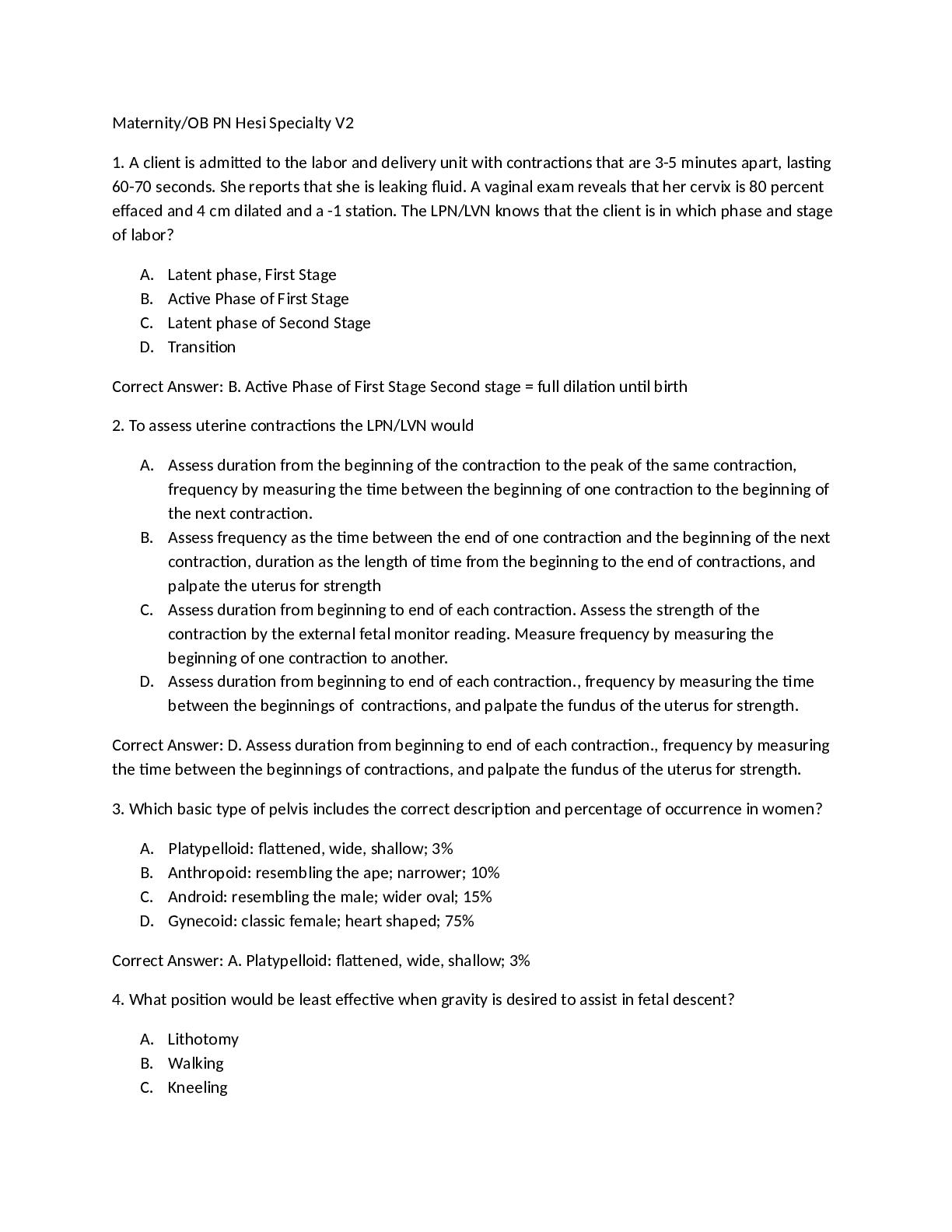
Buy this document to get the full access instantly
Instant Download Access after purchase
Buy NowInstant download
We Accept:

Reviews( 0 )
$12.00
Can't find what you want? Try our AI powered Search
Document information
Connected school, study & course
About the document
Uploaded On
Apr 01, 2021
Number of pages
14
Written in
Additional information
This document has been written for:
Uploaded
Apr 01, 2021
Downloads
0
Views
90

.png)

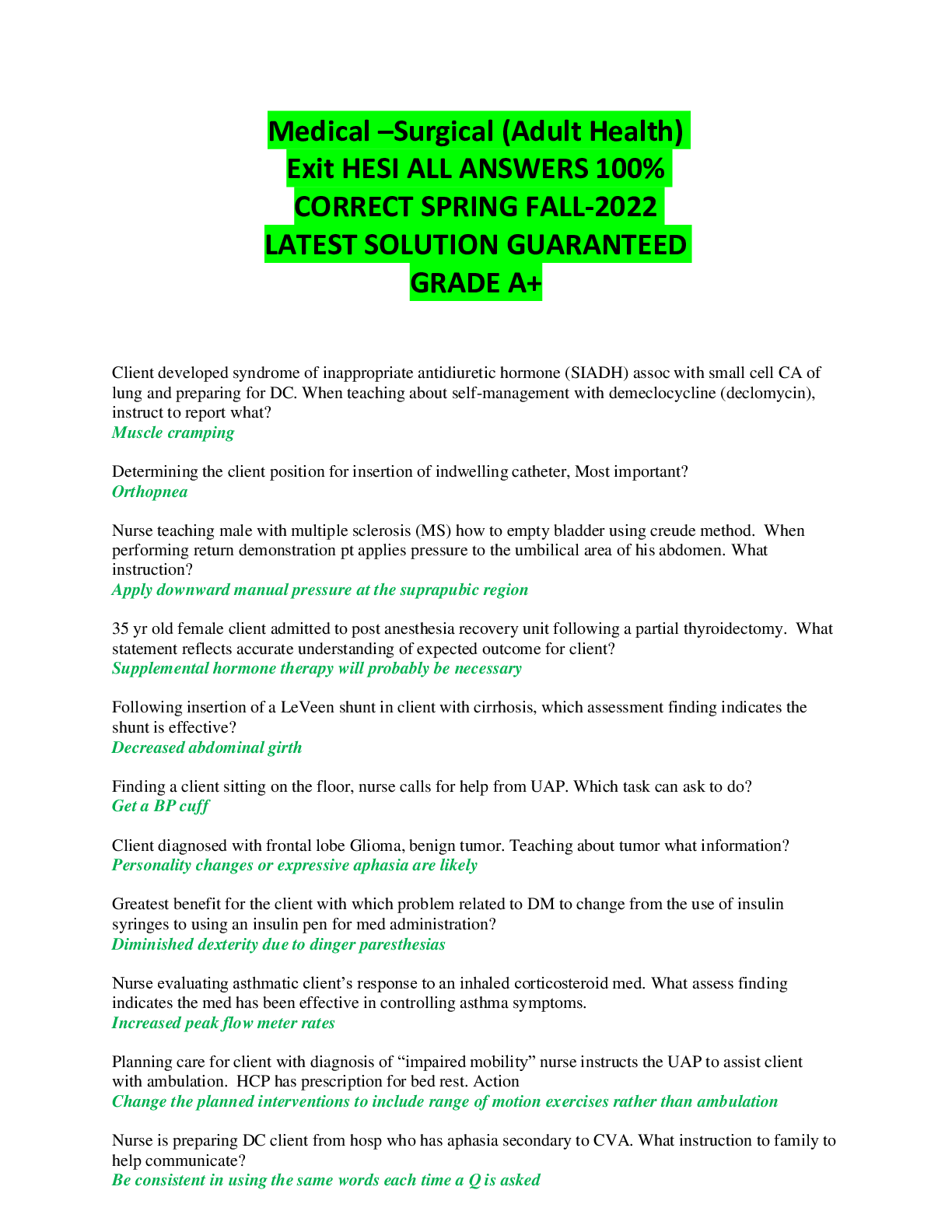

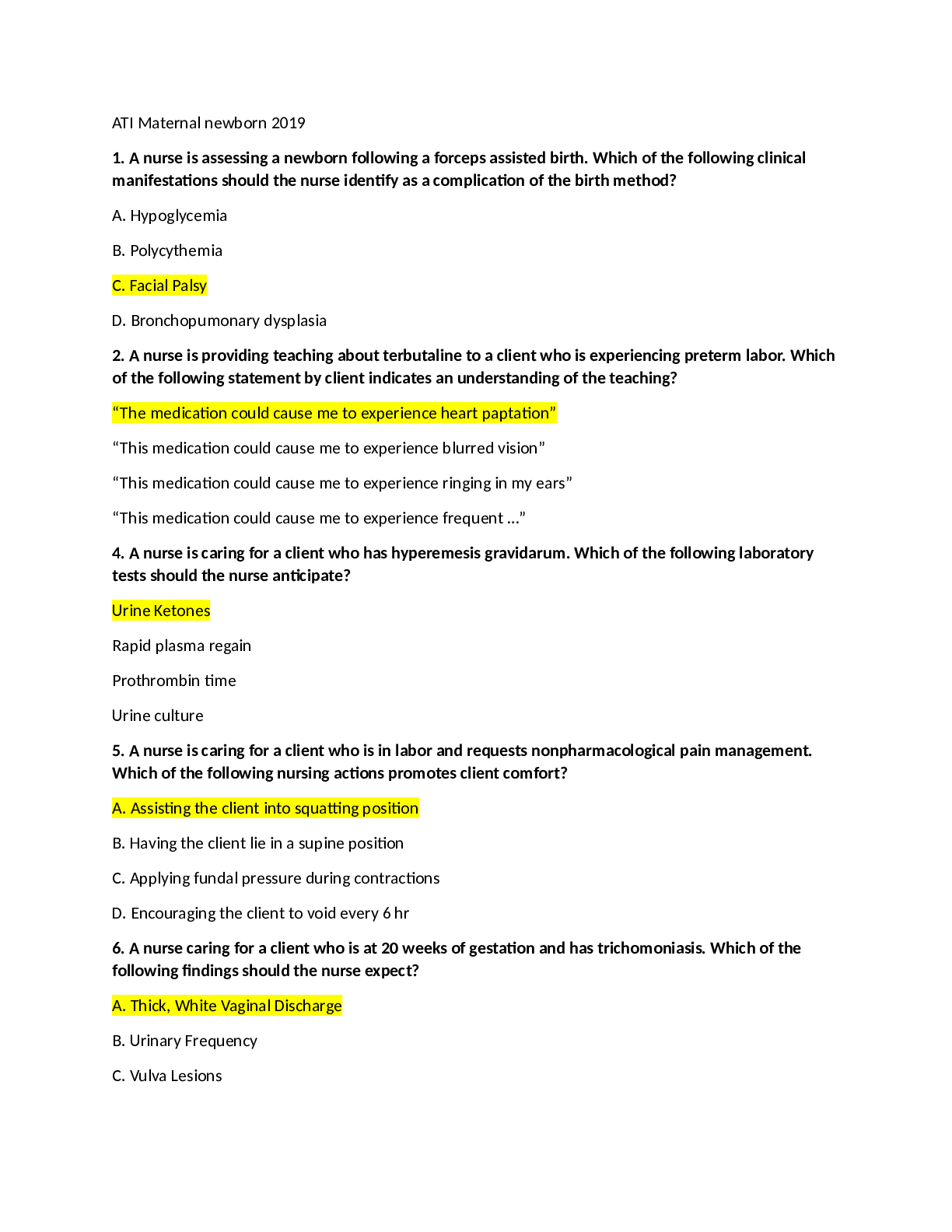


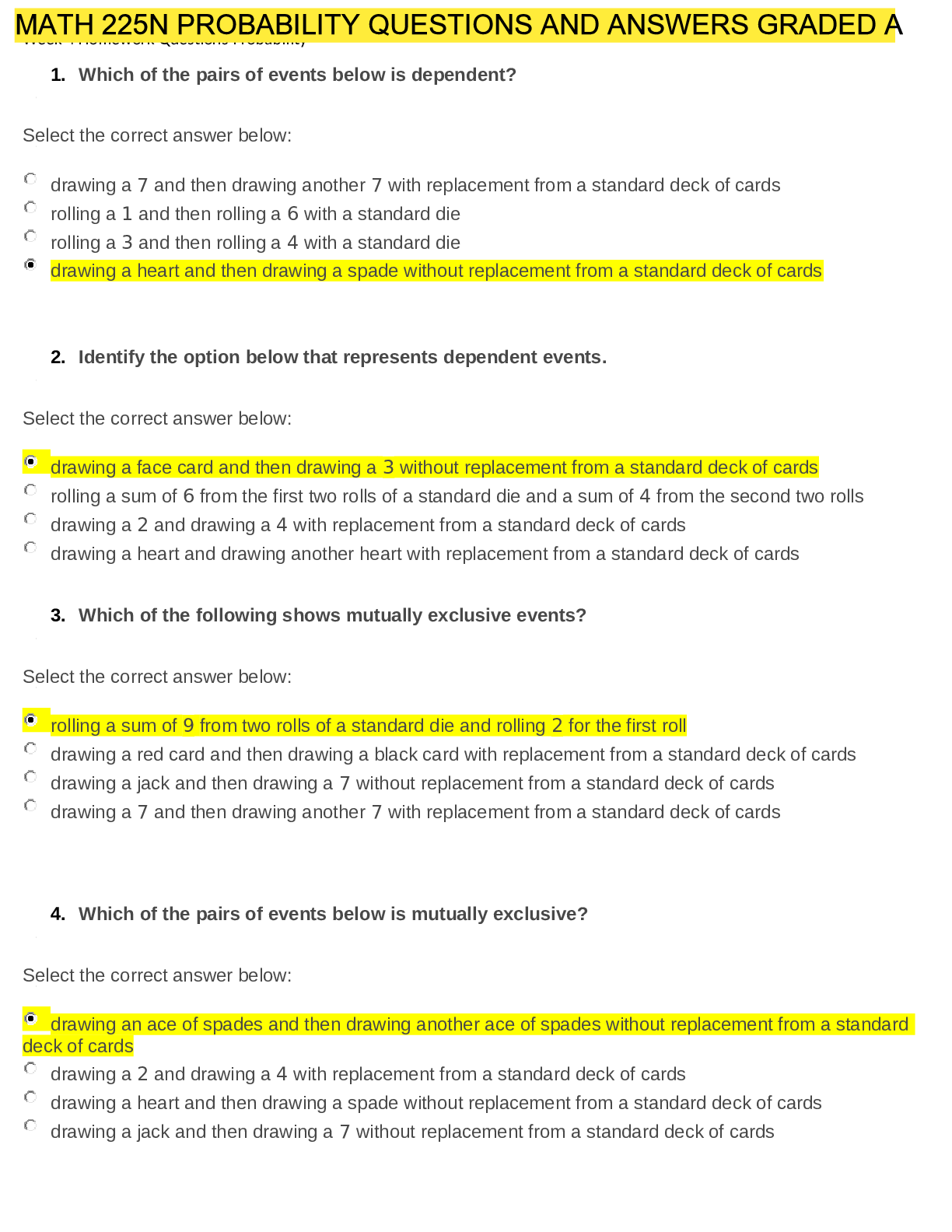





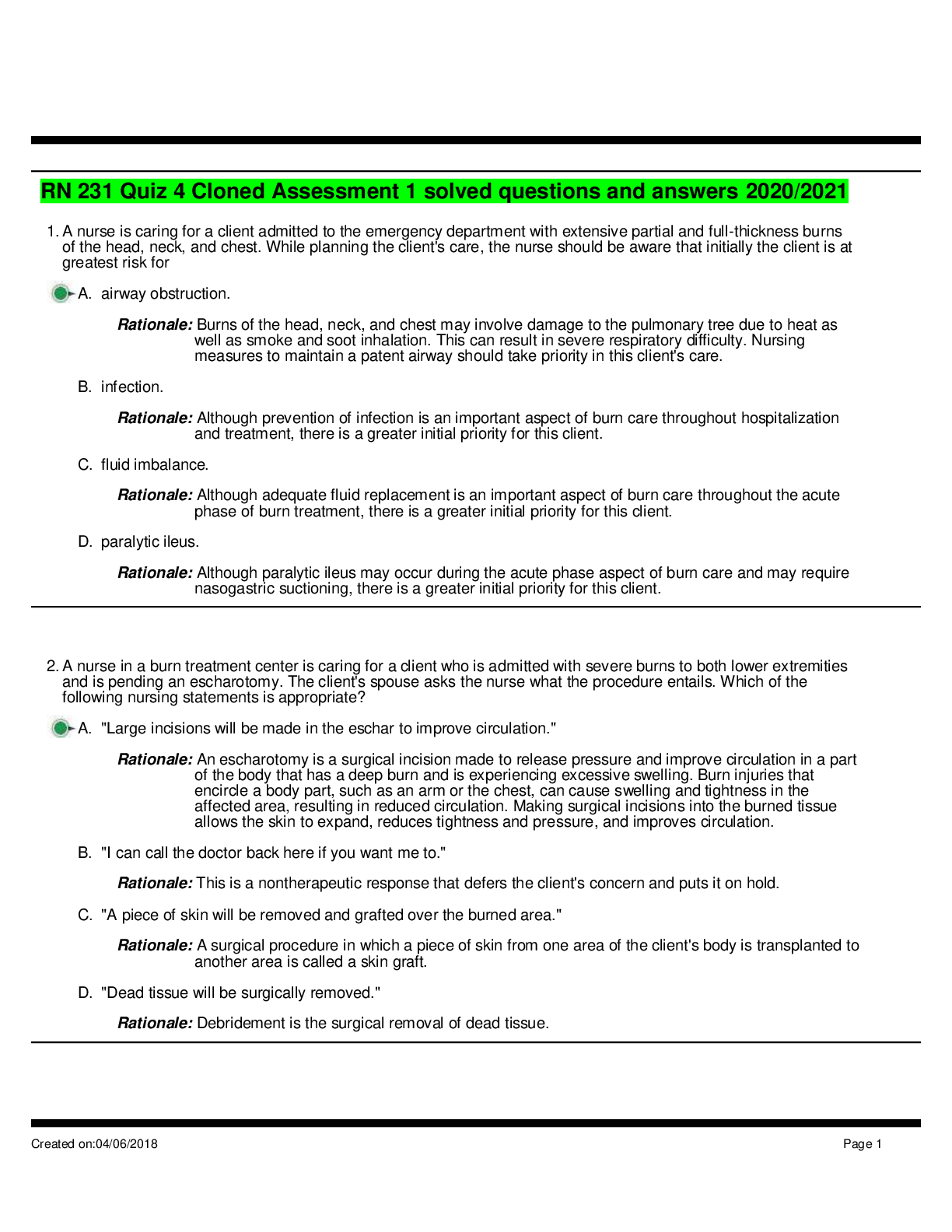

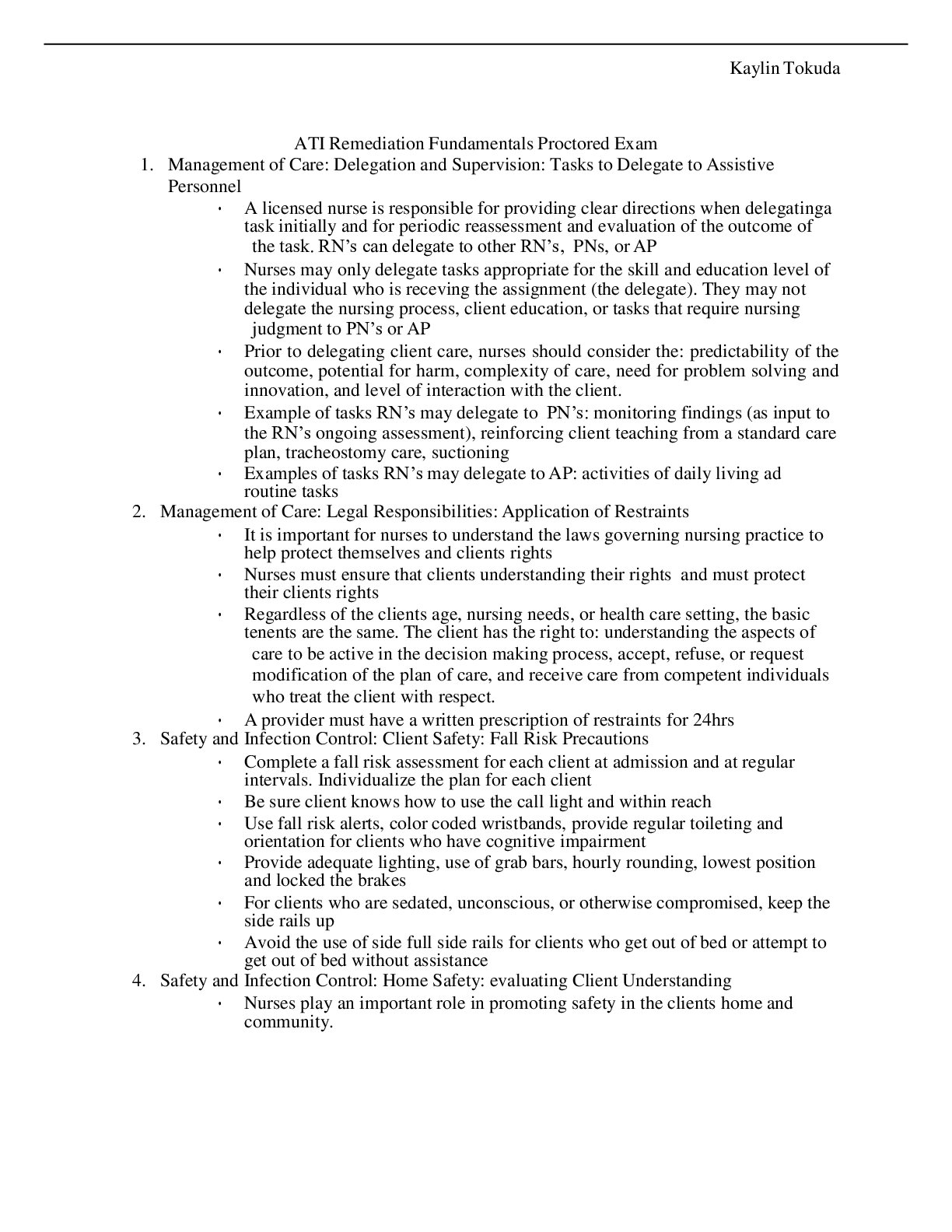
.png)

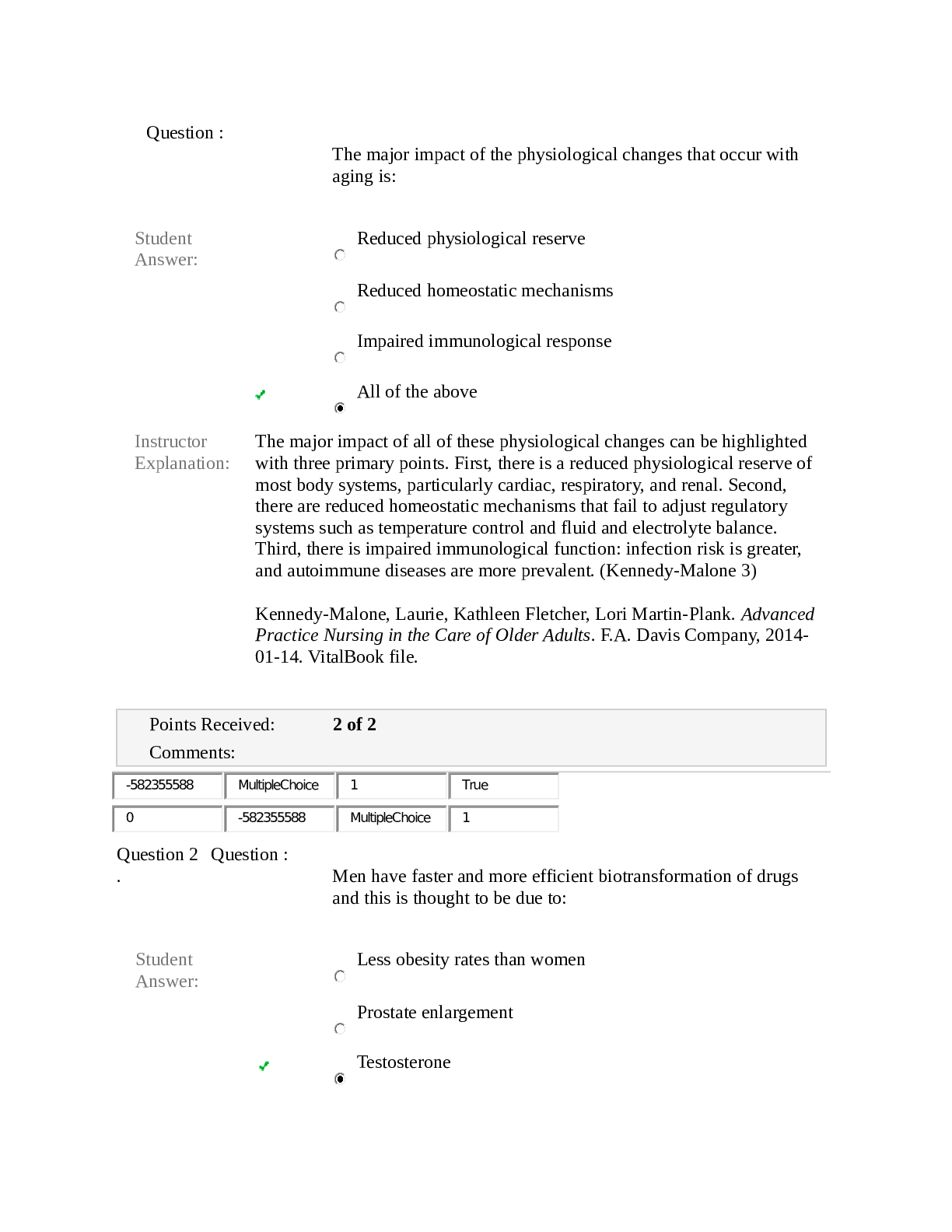

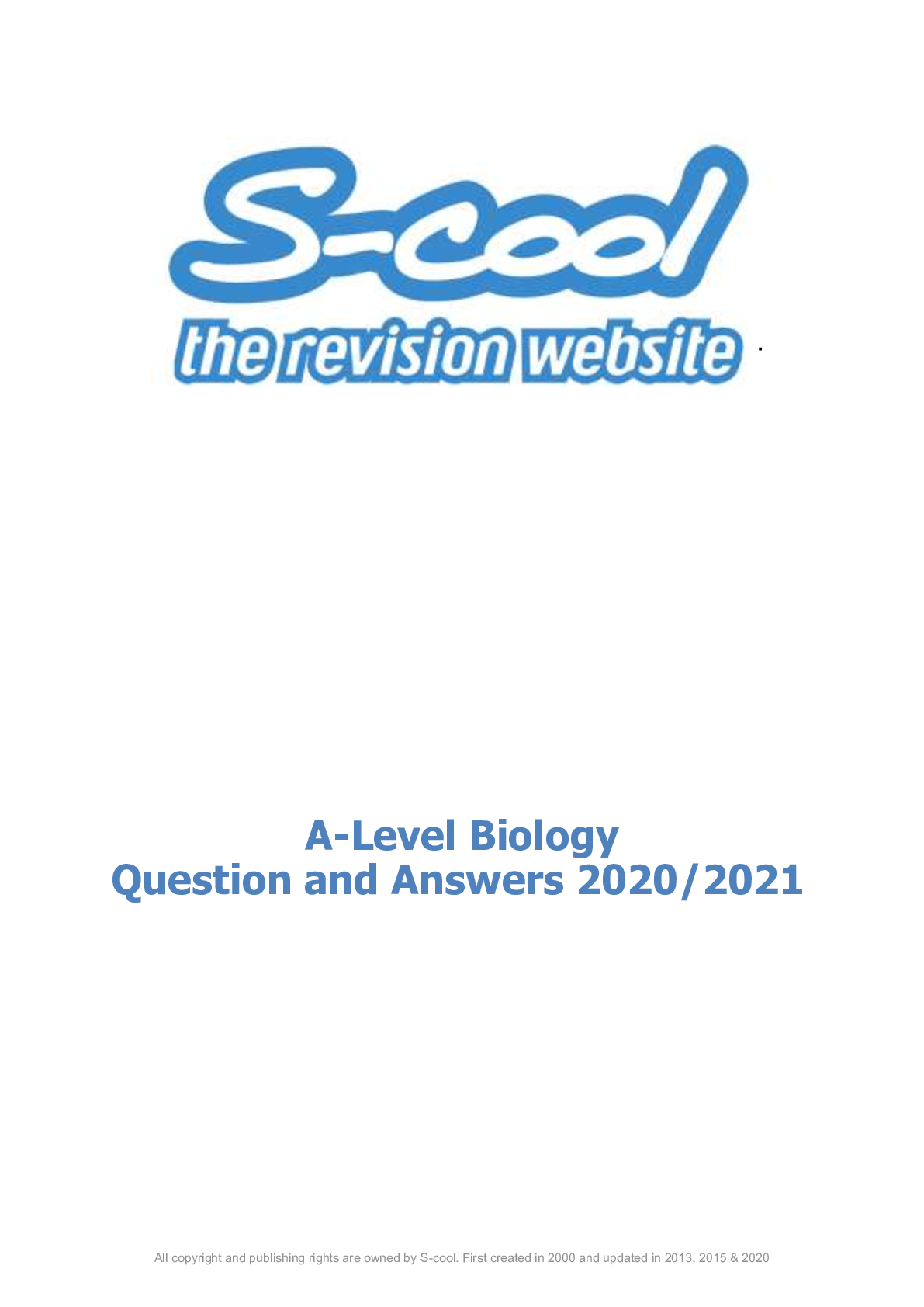
.png)



